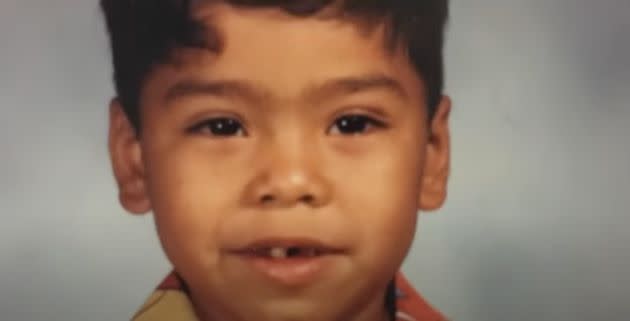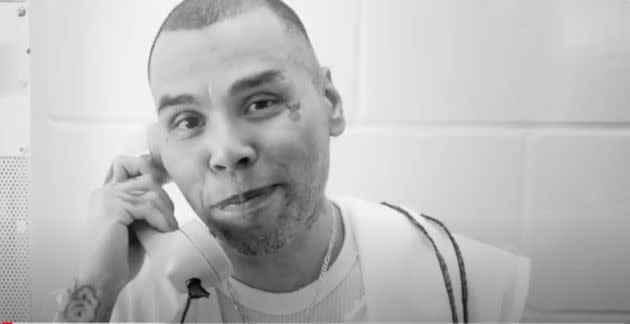Texas Plans To Execute Ramiro Gonzales, Despite Reversal From Doctor Who Helped Send Him To Death Row
In 2006, Ramiro Gonzales was sentenced to death in Texas as punishment for kidnapping, raping and killing Bridget Townsend when they were both 18 years old.
There were indications that Gonzales did not represent the “worst of the worst” kind of criminal that the death penalty is supposedly reserved for. Like many on death row, he endured horrific abuse and neglect as a child. He turned to drugs and alcohol as a teen to cope; he killed Townsend, his drug dealer’s girlfriend, while trying to steal drugs. After he was arrested for sexually assaulting a different woman, Gonzales confessed to the murder. He had turned 18 two months before the killing, making him barely old enough to be legally eligible for a death sentence.
In Texas, jurors on death penalty cases are instructed to predict whether the defendant is likely to commit future acts of violence. A psychiatrist, Dr. Edward Gripon, was pivotal in convincing jurors that Gonzales derived pleasure from sexual assault, was unlikely to stop, and was a poor candidate for rehabilitation. Fifteen years later, Gripon visited Gonzales on death row and reevaluated him. This led Gripon to reverse his opinion, citing a prior reliance on a debunked statistic and a witness statement that has since been recanted. In his second evaluation, Gripon wrote that “it is my opinion, to a reasonable psychiatric probability, that he [Gonzales] does not pose a threat of future danger to society.”
It was the only time that Gripon had ever issued a report changing his opinion in a death penalty case, the psychiatrist told The Marshall Project in 2022. Despite Gripon’s dramatic reversal, Texas plans to execute 41-year-old Gonzales on Wednesday, by lethal injection.
Gonzales has expressed deep remorse for his crime. “I know my apologies cannot even begin to bring you peace of mind and healing, but I feel that I should still tell you how sorry I am for all the pain and anguish you have suffered because of my actions,” he wrote in an apology letter to the Townsend family in 2022, which was excerpted in a petition for clemency filed by Gonzales’ lawyers earlier this month. “I am sorry, deeply sorry, that I took what was so precious to you and I know there’s nothing I can do or say to make it better.”
Gonzales was born in 1982 to a 17-year-old girl who struggled with drug and alcohol addiction, according to the clemency petition. His mother drank and used drugs throughout her pregnancy, and, at one point, intentionally overdosed in an unsuccessful effort to terminate the pregnancy. After his birth, his mother gave him up to her parents. He did not meet his father until he was 19, when they were both locked up at the county jail.
The rejection from Gonzales’ mother was “ever-present,” according to the clemency petition, which noted that she went on to marry and have two more children whom she raised, despite never acknowledging Gonzales as her son. His grandparents worked long days, leaving him unsupervised. Gonzales was repeatedly sexually abused, including by a cousin, starting at the age of 6, the petition said.
Bandera, the town Gonzales grew up in, was “hell on earth,” a cousin, identified only as Jessica, said in a video submitted in support of Gonzales’ clemency application.
“There was a lot of sexual abuse in the family,” Jessica said. “That was something that, till this day, is not really talked about. And it was not talked about, it was never stopped, because that abuse continued on to the next generation, which was Ramiro and me.”

The first time that Gonzales found care and affection from a family member was during elementary school, when his uncle married a woman named Loretta. She “hugged him, praised him, and showed him the love and affection he craved,” according to the clemency petition. When Gonzales was 15, Loretta was killed in a car crash with a drunk driver. Devastated, Gonzales turned to cocaine and methamphetamine to self-medicate. He dropped out of school and began stealing and forging checks to pay for drugs.
Shortly after his 18th birthday, Gonzales attempted to rob his dealer’s home. Townsend was inside, and when she tried to call her boyfriend, Gonzales assaulted and killed her.
Gripon testified at trial that recidivism rates among people who commit sex crimes are as high as 80% — a statistic that was widely used at the time to justify extreme punishments. Years later, when a legal scholar attempted to identify the source of the 80% claim, he found that it came from an unsubstantiated assertion in a 1986 Psychology Today article. Recent peer-reviewed studies have found recidivism rates below 20% after 25 years and that these rates are “substantially lower” among younger offenders, like Gonzales, Gripon noted in his second evaluation.
In court, Gripon had also relied on written statements signed by Gonzales’ cellmate, Frederick Ozuna. The statements described Gonzales confessing to returning to the crime scene three or four times to have “sex with the body” and saying that “he would do it again” and “enjoyed it.”
At trial, Ozuna tried to invoke his right to silence and then attempted to recant his statements. But the prosecutor continued to press, until Ozuna agreed to answer affirmatively to a series of leading questions about the statements. Ozuna later fully recanted in a sworn declaration, describing how an officer threatened him with a harsher sentence if he didn’t help vilify Gonzales. “Ramiro never said those things to me,” Ozuna wrote in the declaration, referring to the claims about assaulting the victim’s dead body.
After Gonzales was convicted, he was appointed a lawyer named Terry McDonald to represent him in state habeas proceedings, a chance to present evidence of constitutional issues at trial. McDonald never met with Gonzales, requested funding for experts, interviewed family members and other witnesses, or conducted evaluations of Gonzales, according to Gonzales’ current lawyers. Ultimately, McDonald filed a nine-page habeas petition (such documents are often hundreds of pages long), which was dismissed by the court as “frivolous.”
Gonzales was previously set to be executed in 2022. Weeks before the scheduled killing, Gripon provided Gonzales’ appellate lawyers with his reevaluation report, admitting to relying on debunked information at trial and concluding that Gonzales did not pose a future danger. Two days before the execution, the Texas Court of Criminal Appeals granted a stay and directed the trial court to consider Gonzales’ claim that his death sentence resulted from false expert testimony.
Without conducting a hearing or reviewing any additional evidence, the trial court signed verbatim the state’s “findings of fact and conclusions of law,” which recommended denying Gonzales relief. (This is common practice: A 2018 report published in the Houston Law Review found that judges adopted prosecutors’ findings in their entirety in 96% of 191 cases that the authors reviewed in Texas’ Harris County.) The Court of Criminal Appeals adopted the trial court’s recommendation, and Gonzales was given another execution date.

While awaiting trial, Gonzales had become a devout Christian.
“He said, ‘I can’t change the past, but I hope I can prove myself in the future,’” said Clinton Young, who was incarcerated with Gonzales on Texas death row before Young’s conviction was overturned due to a stunning revelation that the prosecutor on his case was also on the payroll of the judge. “He walked the walk.”
In 2021, Gonzales tried to donate a kidney, an effort blocked by the Texas Department of Criminal Justice, which said the “uncertain timeline” of the donation could interfere with his execution. “How can I give back life? This is probably one of the closest things to doing that,” Gonzales told The Marshall Project in 2022.
Gonzales earned the equivalent of a bachelor’s degree from a Bible college and wrote sermons for the prison’s radio station. When the prison introduced “faith-based pods” in 2021, Gonzales became one of the program’s first peer coordinators. In an interview recorded for his clemency video, Gonzales described his work ministering to other people on “death watch,” who were also staring down an execution date.
“The first thing we do to minister to them is make sure they got clothing, make sure they got food,” Gonzales said. “And then God comes next, in the sense where it’s like: ‘Hey man, I just want you to know, I’m Christian. I have a date. If you have doubts or if there’s any emotional struggles right now because you’re on death watch, we can talk about it. Whether you have a date or not, it doesn’t matter. You still have a life to live.’”
Gonzales didn’t just help Christians, said Cantor Michael Zoosman, a co-founder of the group, L’chaim! Jews Against The Death Penalty.
“I remember Jedidiah Murphy, who was executed last year, talking about how Ramiro had provided a balm of spiritual support for him,” Zoosman said in the clemency video. “Even if he [Gonzales] never sees the light of day as a free person, he can bring that inner light to others in the darkest corners of our society, just by being there and sharing the faith that he has with them.”
Gonzales closes all of his letters with the words “faith,” “hope” and “love,” a reference to the 13th chapter of 1 Corinthians, which concludes, “And now these three remain: faith, hope and love. But the greatest of these is love.”
“I’m on death row,” Gonzales said in the clemency video. “But I still have faith, I still have hope, and I can still love everybody around me.”

